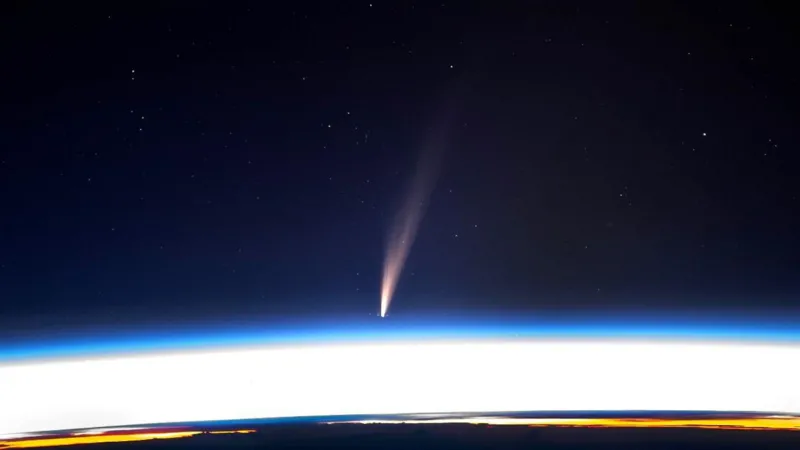

A rare celestial event is unfolding as Comet C/2024 G3 (Atlas), last seen 160,000 years ago, may become visible in skies worldwide over the coming days.
NASA has noted that predicting a comet’s brightness is notoriously difficult, but there is hope that this “sun-skirting” comet could shine brightly enough to be seen with the naked eye.
EDITOR’S PICKS
On Monday, the comet reached perihelion, its closest point to the Sun, making it a prime time for potential sightings.
Experts suggest the comet could appear as bright as Venus, particularly in the southern hemisphere, where viewing conditions are expected to be optimal.
Dr. Shyam Balaji of King’s College London recommends looking toward the eastern horizon before sunrise or the western horizon after sunset, depending on the comet’s position relative to perihelion.
While observers in the northern hemisphere, including the UK, may face challenges due to the comet’s proximity to the Sun, Dr. Balaji advises finding dark skies away from light pollution.
Binoculars or small telescopes can enhance visibility, though care should be taken around sunrise and sunset.
Discovered by NASA’s Asteroid Terrestrial-impact Last Alert System (ATLAS) in 2024, the comet is expected to pass approximately 8.3 million miles from the Sun. Its classification as a “sun-skirting” comet highlights its close approach to our star.
Astronomers have been closely monitoring its trajectory. NASA astronaut Don Pettit recently shared a stunning photograph of the comet from the International Space Station, captioning it, “It is totally amazing to see a comet from orbit. Atlas C2024-G3 is paying us a visit.”
On Friday, the Economic and Financial Crimes Commission (EFCC) declared four individuals—Adefowora Olanipekun, Adefowora Oluwanisola,…
Week 43 Pool Fixtures For Saturday, Apr 19 2025– Latest Updates Week 43 Pool Fixtures…
Hon. Princess Surah Animashaun celebrates Hon. Tobun on his birthday. Describes him as “Messiah of…